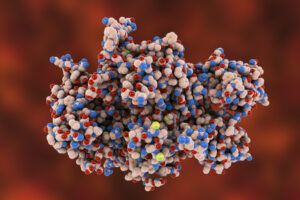Hemophilia A is a X-linked disorder characterized by less than 1% of blood clotting Factor VIII in the blood and is usually managed by hemostatic products to stop or prevent bleeding. While an adeno-associated virus vector has been approved to treat hemophilia A, this gene therapy is not approved for children and Factor VIII expression declines after 6 to 12 months. Results from a phase 1 trial in India, however, evaluating a new lentiviral gene therapy are promising. Briefly, autologous CD34+ hematopoietic stem cells were transduced with an integrating and self-activating lentiviral vector encoding a novel Factor VIII gene into five hemophilia patients (ages 22 to 41 years). Neutrophil and platelet engraftment occurred in all patients with a median time of 11 and 15 days, respectively, and inhibitors to Factor VII did not develop in any patient. Integration of the vector occurred in intronic sequences, and no unexpected adverse events occurred. Median Factor VIII activity from day 28 after transduction to the end of follow-up (9 to 27 months) ranged from 1.7 to 39.9 IU/dL and remained stable. Factor VIII levels were all clinically sufficient to prevent spontaneous bleeding in all five patients. While this phase 1 trial is promising, further trials are needed.
Reference:


Happy that you are highlighting this! I believe that it is a self-INactivating lentiviral vector.